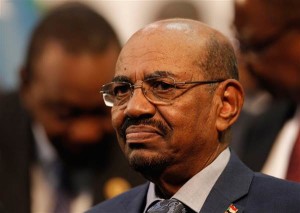
Sudanese President Omar al-Bashir
On 13 October 2016, Professor Guénaël Mettraux and Professor John Dugard filed an amicus curiae brief before the Constitutional Court of South Africa In the matter between the Ministry of Justice and Constitutional Development and the Southern African Litigation Center (“President Al-Bashir case”).
The proceeding are critically important to resolving the tension between a State’s obligation to respect the sovereign immunities of foreign state officials (including heads of states) and that State’s obligation to cooperate with the ICC.
In resolving this tension, Profs Mettraux and Dugard have laid down a series of important principles and effectively mapped a way out of the problem:
1. Immunities and international crimes – A brief historical overview
i. Traditional international law used to grant absolute immunity to heads of state in respect of all acts, commercial and criminal.
ii. Over time, international law started to carve out a number of exceptions to that general and absolutist principle (in particular in respect of commercial acts). This includes an exception to immunities as a defence and/or bar to jurisdiction when faced with international crimes charges (see next).
2. A customary international law exclusion of immunities as a defence and jurisdictional bar to international crimes prosecution
iii. Since at least the end of the Second World War and criminal prosecutions pertaining to that conflict, customary international law excludes the possibility for a Head of State (and other State officials) to rely on his immunity as a defence or as an objection to the jurisdiction of a court before which he appears on charges of international crimes (war crimes; crimes against humanity; or genocide).
iv. This is so whether the jurisdiction seeking to try him is a domestic or an international one. The loss of immunity in such a case is determined, not by the – national or international – character of the tribunal trying such a defendant, but by the international character of the underlying offence with which he is charged.
v. In the context of that exclusionary rule, none of the relevant instruments or relevant incidents of state practice draw a distinction between official and private acts of state officials. All conduct amounting to an international crime are encapsulated into the general exclusionary rule. Nor do these draw a distinction between sitting and former state officials. The exclusion of immunities as a defence and jurisdictional bar is absolute in its effect and pertains to any individual.
vi. Article 27 of the Statute of the ICC recognizes and gives effect to that general principle in the context of proceedings before the ICC. As a jurisdictional provision (dealing with one aspect of the Court’s jurisdiction ratione personae), Article 27 only deals with the effect (or, rather, the absence of effect) of an official position and related immunities on the jurisdiction of the Court itself. It does not regulate, nor purports to regulate, the effect of these immunities on the jurisdiction of any other court. Continue reading →
 The issue of immunity of State officials from foreign criminal jurisdiction has been under the lens of the International Law Commission for approximately the last decade. During this time, the Secretariat, the former and the incumbent Special Rapporteurs, Mr. Roman A. Kolodkin and Ms. Concepción Escobar Hernández, various Governments, the Drafting Committee and the ILC in plenary, together with the GA Sixth Committee, have been involved, to varying degrees, in studying the issue.
The issue of immunity of State officials from foreign criminal jurisdiction has been under the lens of the International Law Commission for approximately the last decade. During this time, the Secretariat, the former and the incumbent Special Rapporteurs, Mr. Roman A. Kolodkin and Ms. Concepción Escobar Hernández, various Governments, the Drafting Committee and the ILC in plenary, together with the GA Sixth Committee, have been involved, to varying degrees, in studying the issue.
